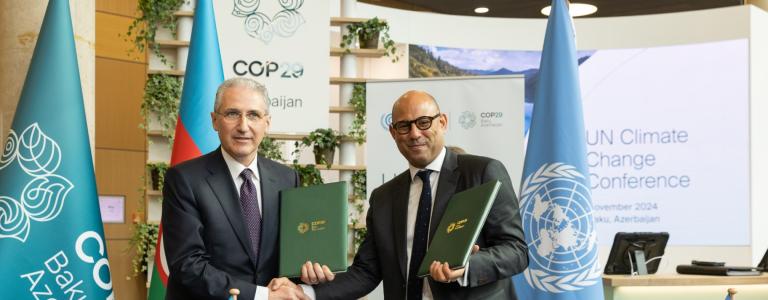What Will Happen at COP 29?
Q and A with Jennifer Bansard of Earth Negotiations Bulletin
Talks at the 2024 UN Climate Change Conference (COP 29) will range from defining a way forward on finance through a new collective quantified goal (NCQG) to mitigation, and loss and damage. Ahead of negotiations in Baku, IISD’s Earth Negotiations Bulletin Team Lead Jennifer Bansard examines the agenda and breaks down what to watch as eyes turn to Azerbaijan.
What is the top priority on the agenda at COP 29?
The NCQG on climate finance is undoubtedly the priority item to watch. Parties will be working to finalize a more ambitious climate finance goal ahead of the 2025 deadline set in the context of the adoption of the Paris Agreement, taking into account the needs and priorities of developing countries.
Previously, developed countries committed to jointly mobilize USD 100 billion per year by 2020, but delivery has proved challenging. The goal was not met in 2020 or in 2021, and the delay in the delivery of the USD 100 billion eroded a lot of trust, particularly of developing countries. This makes the negotiations on this follow-up climate finance goal very difficult.
We regularly hear discussions around every country raising their ambition and doing more to tackle climate change, but many developing countries have capacity constraints in that regard. It is thus a central pillar of the climate process that developed countries financially support developing countries to take climate action. Many developing countries feel they need to be shown that their wealthier counterparts will honour their commitment to support their climate action through finance.
Agreement on the NCQG is not only key to rebuilding trust but also essential to informing the preparation of the next round of nationally determined contributions (NDCs) under the Paris Agreement, which are due in 2025.
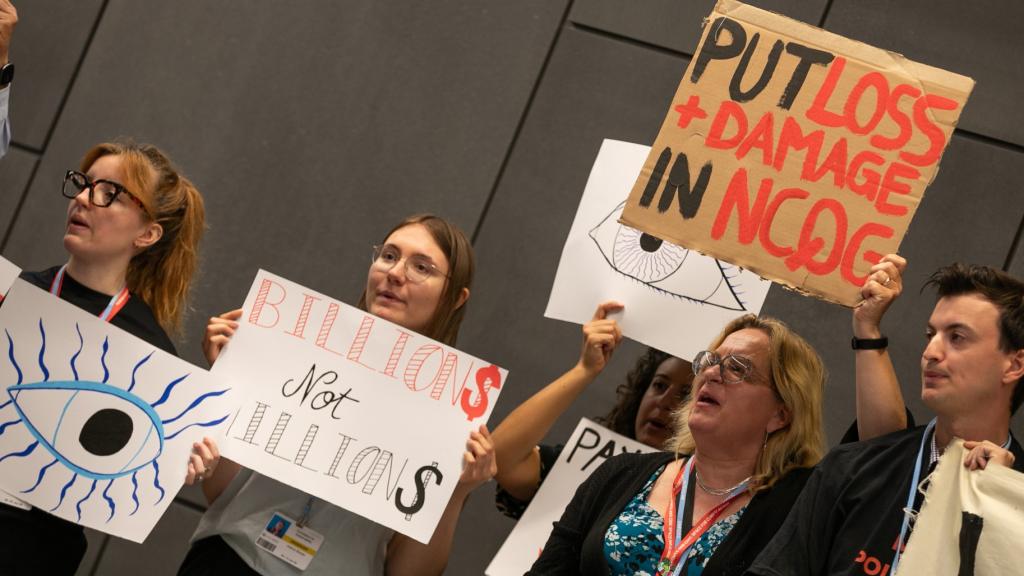
Where do we stand on climate change mitigation?
Looking back at COP 28 in Dubai, the biggest breakthrough in those negotiations was the inclusion of language on fossil fuel transition and expanding renewable energy capacity. That was huge because reducing greenhouse gas emissions is really the essence—the root—of tackling climate change. Now we have question marks around how this will be implemented.
The discussions in Baku will hopefully provide a strong indication of a way forward. Whether it happens in the context of discussions on the mitigation work program or in discussions on guidance for the next round of NDCs doesn't really matter.
What matters is that we get clear signals that countries are committed to transitioning away from fossil fuels, and they will make the next 5 years really count toward keeping 1.5 °C alive.
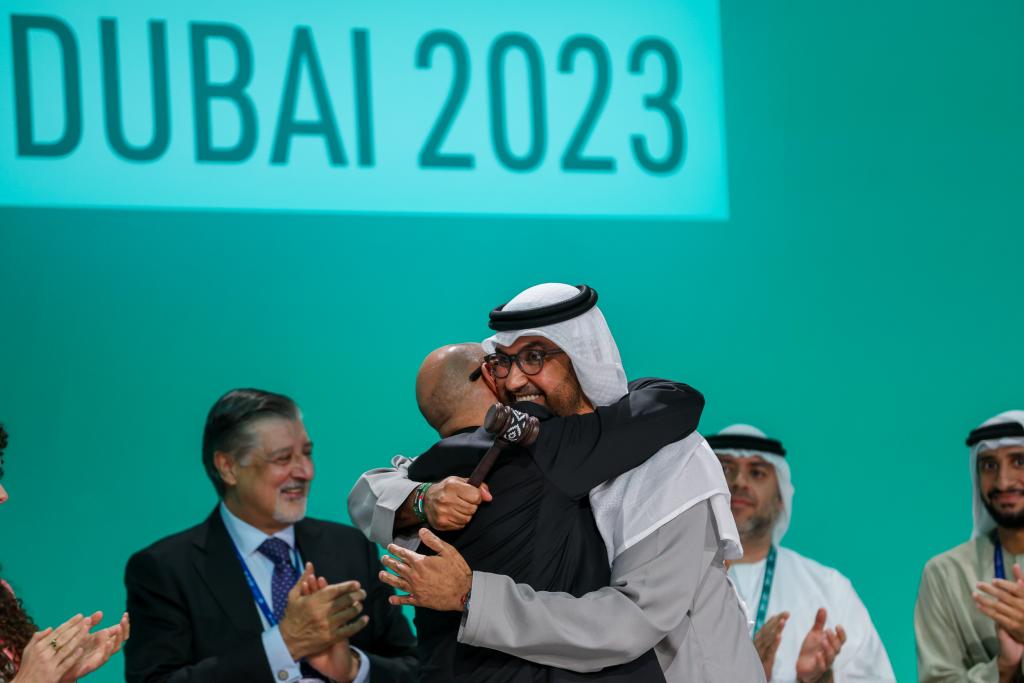
What does COP 29 mean for loss and damage?
I think Baku will be a big moment on this front. Mostly, it's about assessing progress in the last few years, and there's been quite a lot. In Baku, parties will review the Warsaw International Mechanism on loss and damage, which has really advanced our general understanding of what loss and damage is and the different ways it can materialize. They will also provide guidance on the early operationalization of the Santiago Network, which aims to catalyze technical assistance on loss and damage.
We can also expect to see more on the establishment and operationalization of the new loss and damage fund. They will discuss the fund's first report, look at what progress has been made there, and reflect on important issues, such as eligibility criteria. We are talking about exactly how we are going to channel money and to whom. The idea is that the loss and damage fund will not become a project-based fund where it takes a really long time to access funding but something with clear triggers in place for quick delivery of support to countries affected by loss and damage.
What else can we expect to see during negotiations?
There’s a whole laundry list of agenda items to look out for. Some have high hopes for Article 6. Keep your fingers crossed on that because those negotiations have been going on for a long time.
Parties will also have discussions on the Global Goal on Adaptation (GGA), feeding back on the work of thematic experts who have started developing indicators to measure progress toward the GGA.
But there are a lot of other issues. Parties will talk about agriculture. They are supposed to finalize a review of the gender action plan. They are also going to talk about just transition. We can also expect reflections on lessons learned from the first global stocktake and possibly adaptation of the modalities of the next one.
How could recent elections and geopolitical context affect discussions?
The current global geopolitical context is very difficult and tense. We have conflicts all around the world that are increasing, and we have various waves of elections in different countries that have led to a strong tightening of budgets, which would make international climate cooperation more difficult.
We have a lot of uncertainty through different elections. We've seen countries that have struggled to find stable majorities. Overall, there are a lot of political question marks around how the next few years are going to look.
How does COP 29 link with other negotiations and the wider environmental agenda?
COP 29 convenes during a busy end of the year. We have all three Rio Conventions having COPs this year. It's not just the climate change negotiations; there are also biodiversity and desertification negotiations happening. Delegates from small countries will likely be travelling back to back to many different meetings, including one important one for the climate change negotiations in The Hague in December. I'm talking about the International Court of Justice hearing on states’ obligations with respect to climate change.
It may seem like 2024 is almost done, but there's still a lot going to happen on the environmental agenda this year.
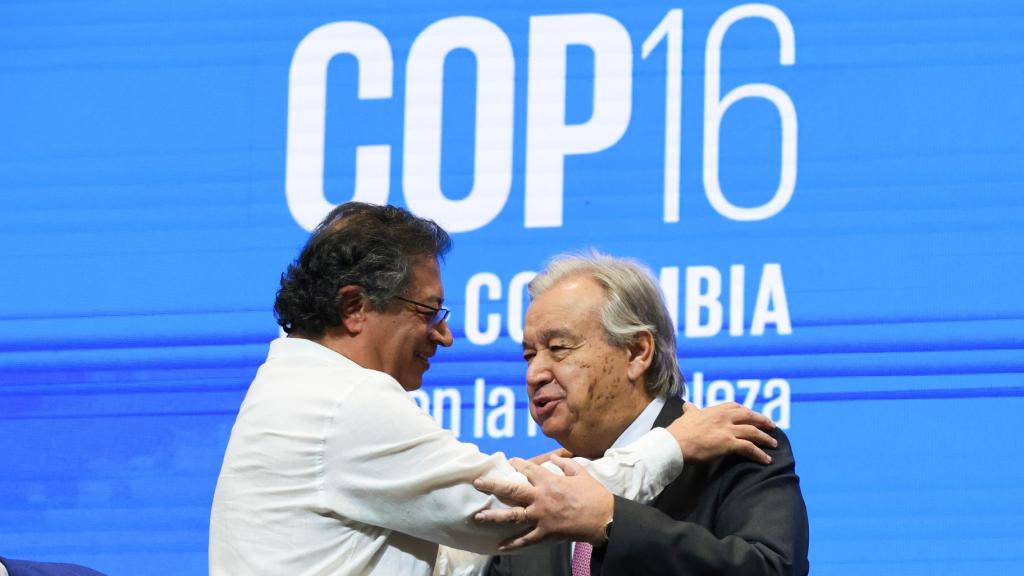
How much influence does the COP Presidency have on issues addressed at negotiations?
There are often a lot of questions about the role of the COP Presidency, and it is not easy to explain to people why climate change negotiations are happening in big oil-producing countries. But here, let me just emphasize that the issues that are being addressed at climate change negotiations and at other multilateral environmental negotiations are not dictated by the COP Presidency. They're collectively established. We know 5 years in advance that some issues will reappear on the agenda down the road.
So, I want to give some reassurances that the process is very stable. The role of the COP Presidency is to moderate the negotiations. They have a strong role in trying to facilitate agreement on very thorny issues. It's a hugely important diplomatic exercise to try and sort out possible disagreements, ideally ahead of time. It is a key role, but it is not so influential that the COP Presidency can sway the whole negotiations.
We have seen issues in the past when parties feel that the negotiation process is not conducted transparently: they can object to any outcome proposed for adoption. Every COP Presidency knows they have a certain mandate they must fulfill—and they are there to serve the process.
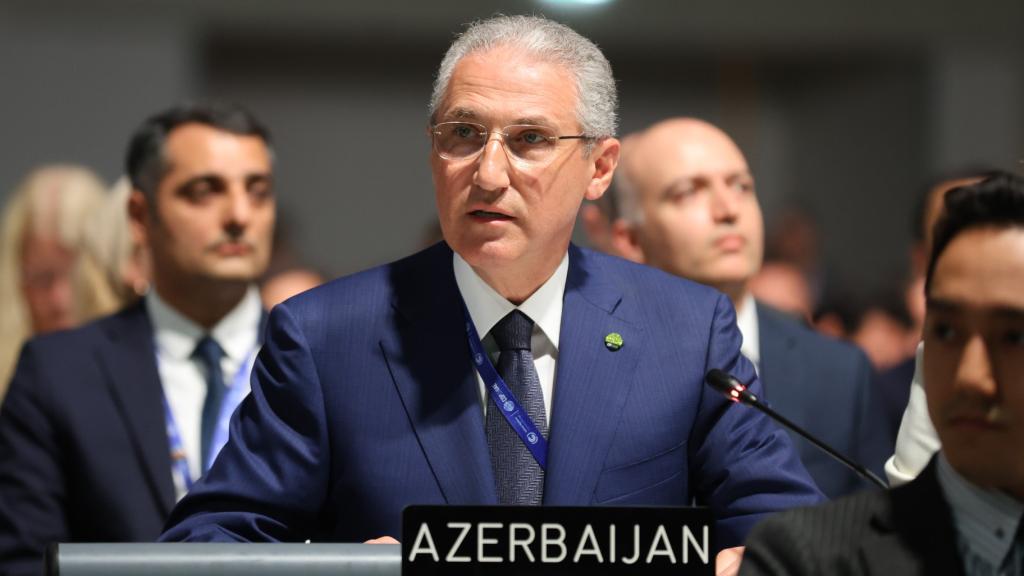
Are there any other thoughts on your mind heading to this COP?
I could tell you about all the temperature records we've been breaking, about all the glaciers that have been melting, and all the extreme weather events whose likelihood would be lower if we had not already surpassed a certain level of temperature warming. But really, these things are well established now. I think, at this point, we are getting desensitized to these records.
We know very well we are not on track to fulfilling our objectives. We are coming increasingly closer to moving past the 1.5 °C bar. Scientists have done a tremendous job at explaining exactly why it matters and why every increment of warming will magnify the impacts of climate change. We have seen a lot of scientists burn out, seeing the slow response in policy. We have seen a lot of activists, especially young activists, getting very frustrated about the slow pace of the negotiations. And it is true we have not been up to the pace that would be necessary.
Maybe Baku will help. In 2025, we have the big milestone of the next round of NDCs, which are supposed to be 1.5 °C aligned and move us closer to a transition away from fossil fuels and toward renewable energy. The question is this: How will Baku move us closer to that result?
Do you have any reflections on how climate action can be facilitated in between negotiations?
I hope COP 29 will deliver a new climate finance goal and that it will provide some clarity as to how countries are going to respond to the decision on the global stocktake. But really, this is not all on the multilateral level. Countries have the responsibility to come up with new, more ambitious, NDCs. Everybody can do their part to increase the pressure on their government to take such action and come back with more ambitious plans next year.
You might also be interested in
How Indigenous Negotiators Fared in 2024
In the foreword in The State of Global Environmental Governance 2024, Hindou Oumarou Ibrahim shares her insights on what goals were reached, where "business as usual" must change, and what her priorities are for 2025.
December 2024 | Carbon Minefields Oil and Gas Exploration Monitor
In November 2024, 23 oil and gas exploration licences were awarded across five countries, with Russia granting the licences that account for the largest portion of embodied emissions.
Artisanal and Small-Scale Mining of Critical Minerals
This report examines the potential for artisanal and small-scale mining (ASM) to take an expanded role in the global supply of critical minerals.
Year One of SUNCASA Progress: Lessons in Nature-Based Solutions
In its first year of implementation, the Scaling Urban Nature-based Solutions (NbS) for Climate Adaptation in Sub-Saharan Africa (SUNCASA) project has delivered significant results, laying the foundation for scaling up gender-equitable and socially inclusive climate adaptation efforts in 2025 and 2026 in Dire Dawa (Ethiopia), Kigali (Rwanda), and Johannesburg (South Africa).
